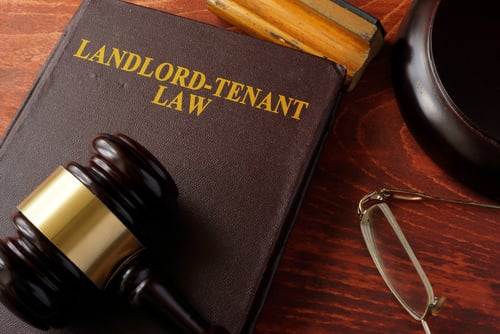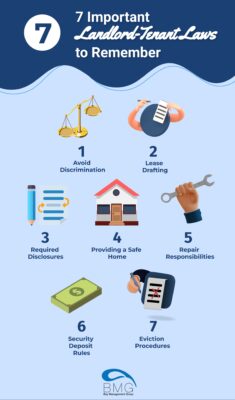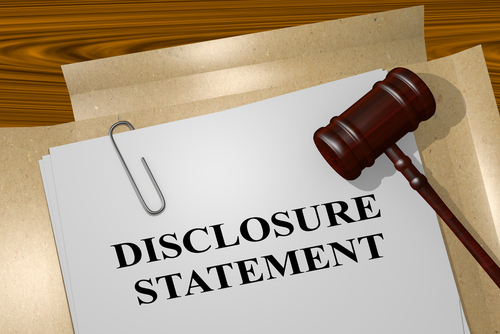Laws concerning rental homes are established to protect both the landlord and tenant involved in the lease agreement. While landlords want to make a profit and wish to keep their investment properties safe, tenants want their rights to be respected. As such, compliance with federal, state, and local regulations of rental housing is crucial for landlords. Today we will discuss some of the top landlord-tenant laws to remember while renting out your Montgomery County home.

7 Important Landlord-Tenant Laws to Remember
Whether you’re a landlord or property manager in Northern Virginia, there are several laws to remember. Staying up-to-date with these critical landlord-tenant laws is crucial to staying compliant with your rental practices.

- Avoid Discrimination
- Lease Drafting
- Required Disclosures
- Providing a Safe Home
- Repair Responsibilities
- Security Deposit Rules
- Eviction Procedures
Avoid Discrimination
Owning an investment home in a diverse town like Silver Spring can make you vulnerable to discrimination. With all walks of life looking to rent homes, you must be aware that you are following two of the most important federal landlord-tenant laws:
Fair Housing Act
This law prohibits landlords from discriminating against potential tenants based on their race, color, national origin, religion, sex, disability, or the presence of children. More so, this act also applies to advertising, meaning you are not allowed to direct the advertisement of a rental property to a specific group of people.
In addition, Maryland adds additional protection to potential tenants by preventing discrimination based on marital status, gender identification, or sexual identification.
Fair Credit Reporting Act
This act dictates how a landlord may use a tenant’s credit history. Designed to protect the tenant’s privacy and to ensure the most accurate information is being reported, the Fair Credit and Reporting Act has several requirements for landlords when accessing a tenant’s credit history:
- You must get permission from the tenant to run a credit report.
- You must provide the credit agency used to run the report.
- An “adverse action notice” is required detailing a denial of tenancy.
Lease Drafting
Drafting a legally compliant lease agreement can be difficult. It is easy to get caught up in making a profit, especially in places such as Gaithersburg, where a population boom creates many rental opportunities. Owning multiple properties may cause you to slack in drafting thorough lease agreements. Check out some of the provisions you must include in each lease agreement you draft:
- You must provide written notice for a tenant to vacate the premises.
- Acknowledgment of liability for damage caused by negligence or violations of applicable laws.
- Late rent penalties must not exceed 5% of the monthly rental amount. Additionally, no late charges can apply until the rent is more than ten days late.
It is just as important to understand some of the things that you cannot include in your lease agreement:
- Authorization to take possession of the rental property without a court order.
- Denial of a tenant’s right to a trial by jury.
- A provision allowing a rent increase more than once in a twelve-month period.
It is important to note that these are just some of the many regulations regarding legal lease agreements. As such, some of these requirements may differ.
Required Disclosures
The Consumer Protection Act protects tenants from a landlord engaging in any “unfair or deceptive trade practice”.

This means there are certain things you must disclose to potential tenants before they sign a lease to rent your property. One such disclosure is whether your property has been exposed to lead paint.
Maryland’s Reduction of Lead Risk in Housing law requires owners of rental properties built before 1978 to register their units, distribute educational materials, and meet specific lead paint risk reduction standards in their homes. More importantly, your tenant may request a copy of your most recent passing lead paint risk reduction inspection certificate on file with the Maryland Department of the Environment.
Providing a Safe Home
Local housing codes in Maryland set minimum property maintenance standards for housing that landlords must abide by. A rental property may be deemed unfit for occupancy if it is unsanitary, vermin or rodent-infested, contains filth or contamination, or lacks ventilation, illumination, sanitary, or heating facilities.
However, remember that the landlord-tenant laws also protect you. Tenants have a certain level of responsibility regarding your rental home, such as cleanliness, garbage disposal, and vermin extermination after occupancy begins. If your tenant does not meet these standards, they become liable for your property, and you will have certain rights under the law to recover from damages should any occur as a result.
Repair Responsibilities
Your refusal to make certain repairs to your rental home may cause serious legal ramifications.
As a landlord, you must present the rental home as clean, safe, and sanitary at the beginning of the tenancy. More specifically, you must:
- Maintain and repair all electrical, plumbing, and other facilities.
- Supply hot and cold water as required by housing code standards.
- Keep all areas of the rental property, grounds, and facilities clean, safe, and sanitary.
By law, you must make any necessary repairs to keep your rental property in as good a condition as it was at the start of occupancy. However, if you decide to dictate some particular maintenance issues to your tenant, you may do so as long as it is clearly detailed in the lease agreement.
Security Deposit Rules
A security deposit is any payment of money given to the landlord by a tenant to protect the landlord against the tenant’s failure to pay rent, expenses incurred due to a breach of lease, or damage to the rental property.

This landlord-tenant law protects you in the sense it helps keep your investment property safe. However, tenants have several rights when it comes to how their security deposit is handled by you.
- You must provide the tenant with a receipt.
- You must deposit the money in a federally insured financial institution within 30 days.
- The money must remain in the bank for the lease term.
- You must provide an itemized list if any of the money is used.
Eviction Procedures
If you rent a home to the affluent tenants of Chevy Chase, chances are you will not run into any financial reasons for evicting them. However, it is wise to understand the why and how behind proper tenant evictions, just in case.
You may evict a tenant for non-payment of rent, breach of the lease agreement, or failing to vacate after receiving proper notice. You can only evict your tenant by Order of the District Court in the presence of the Sheriff who is responsible for executing that Order.
Additionally, you may not evict a tenant without proper judicial process. For instance, you cannot physically remove your tenant, lock a tenant out of the property, cut off utilities such as water or electricity, or remove windows or doors to force a tenant out of the home. It is essential you follow the proper court proceedings to avoid criminal prosecution or civil liability. Lastly, if a tenant feels the eviction was unjustified, they have the right to a court hearing to solve the issue.
Avoid Legal Issues With Professional Management
The bottom line is that landlord-tenant laws are in place to protect both parties involved in a rental agreement and are meant to be taken seriously. Landlord-tenant laws change frequently, and keeping up with them can be a struggle.
Enlisting your favorite property management group to handle your rental property is a safe way to avoid any legal issues regarding landlord-tenant laws. With a knowledgeable staff up to date on all rental property laws, you will never have to worry about discrimination during the screening process, non-compliant lease agreements, mishandling of security deposits, or improper evictions.
Need More Advice? contact us today!
If you’re looking for top-notch management for your rental properties, look no further than Bay Property Management Group. We offer comprehensive rental management services, from tenant screening, maintenance, rent collection, and more. Contact BMG today to learn about our services in Baltimore, Philadelphia, Northern Virginia, and Washington, DC.
